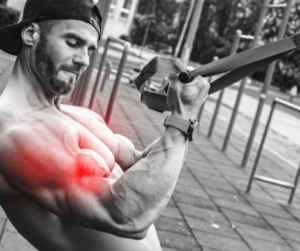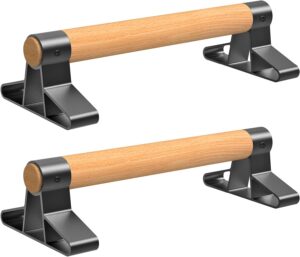If you’re looking to enhance your performance in calisthenics training, paying attention to your diet is key. The right foods can provide you with the energy, nutrients, and recovery that will maximize your workout gains. In this article, we’ll explore the top foods that can give you an extra boost in your calisthenics training and help you reach your fitness goals. No matter if you’re a beginner or advanced practitioner, incorporating these foods into your diet can take your performance to the next level. So, let’s dive in and discover the fuel your body needs to excel in calisthenics training.
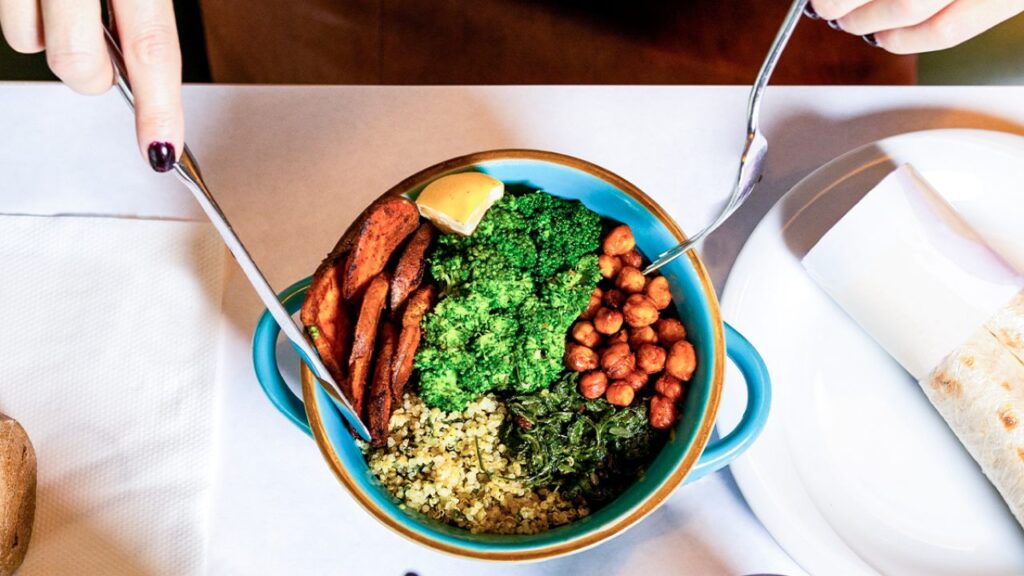
This image is property of longevity.technology.
Carbohydrates
Importance of carbohydrates in calisthenics training
Carbohydrates play a crucial role in providing energy for your calisthenics workouts. As the primary fuel source for our muscles, carbohydrates are essential for optimal performance and endurance during training. When you engage in high-intensity exercises such as squats, push-ups, or pull-ups, your body requires a steady supply of glucose, which is derived from carbohydrates.
Consuming an adequate amount of carbohydrates before your workout ensures that your muscles have the necessary glycogen stores to fuel your movements. Without enough carbs, you may experience reduced energy levels, fatigue, and diminished performance during your calisthenics routine.
Types of carbohydrates to include in your diet
Not all carbohydrates are created equal, and it is important to focus on consuming the right types of carbs to support your calisthenics training. Opt for complex carbohydrates, which provide a slow and steady release of energy throughout your workout. These include whole grains such as brown rice, quinoa, and oats, as well as starchy vegetables like sweet potatoes and butternut squash.
Fruits, such as bananas, apples, and berries, are also excellent sources of carbohydrates due to their natural sugars and fiber content. They not only provide energy but also supply essential vitamins and antioxidants to support overall health. However, it is important to balance your fruit intake to avoid consuming excessive amounts of sugar.
Avoid refined carbohydrates like sugary snacks, white bread, and sugary beverages as they can lead to quick energy spikes followed by crashes, which can negatively impact your performance and overall health.
Timing of carbohydrate consumption
When it comes to carbohydrates, timing is key in optimizing your calisthenics training. Before a workout, aim to consume a meal or snack that contains a moderate amount of carbohydrates approximately 1-3 hours beforehand. This will allow your body enough time to digest and absorb the nutrients, providing a steady release of energy throughout your training session.
If you have less time before your workout, opt for easily digestible sources of carbohydrates, such as a banana or a small bowl of oatmeal. These choices provide quick energy without causing any discomfort during exercise.
During prolonged or intense workout sessions, consider consuming small amounts of carbohydrates, such as energy gels or sports drinks, to replenish glycogen stores and maintain energy levels. However, be mindful not to overconsume these products, as they can contain added sugars and unnecessary calories.
Remember, everyone’s carbohydrate needs may vary based on factors such as intensity and duration of workouts, body composition, and overall energy expenditure. It is important to listen to your body and adjust your carbohydrate consumption accordingly.
Proteins
Role of proteins in calisthenics training
Proteins are the building blocks of muscles, making their consumption essential for calisthenics training. When you perform exercises that strain your muscles, small tears occur in the muscle fibers. Protein is crucial for repairing these tears and promoting muscle growth and strength.
Including an adequate amount of protein in your diet supports muscle recovery, reduces muscle soreness, and aids in the development of lean muscle mass. Moreover, protein consumption can help boost your metabolism, as it requires more energy to digest compared to carbohydrates and fats.
Sources of high-quality protein
To meet your protein needs, incorporate high-quality sources of protein into your calisthenics training diet. Lean meats like chicken, turkey, and fish are excellent choices due to their high protein content and essential amino acid profiles. Plant-based options such as tofu, tempeh, lentils, and beans are also great sources of protein.
Including dairy products like Greek yogurt and cottage cheese can provide an additional protein boost. Eggs, both the yolks and whites, are not only rich in protein but also contain other vital nutrients such as vitamins and minerals.
If you prefer a convenient option, protein powders derived from sources like whey, casein, or plant-based proteins can be incorporated into shakes or smoothies. However, it is important to prioritize whole food sources of protein whenever possible, as they offer a wider range of nutrients.
Timing and amount of protein intake
To maximize the benefits of protein, distribute your protein intake evenly throughout the day. Aim to include protein in each of your meals and snacks to support muscle recovery and synthesis. By spreading out your protein consumption, you provide a constant supply of amino acids to your muscles, optimizing their growth and repair.
As for the amount of protein you should consume, most athletes and active individuals benefit from consuming approximately 0.6 to 0.9 grams of protein per pound of body weight per day. This range may vary based on factors such as training intensity, goals, and individual preferences.
Consuming a source of protein within an hour after your workout is particularly important. This post-workout period is known as the “anabolic window,” when your muscles are primed to absorb and utilize nutrients for recovery and growth. Including a protein-rich snack or meal during this time can optimize your muscle repair and enhance your overall progress in calisthenics.
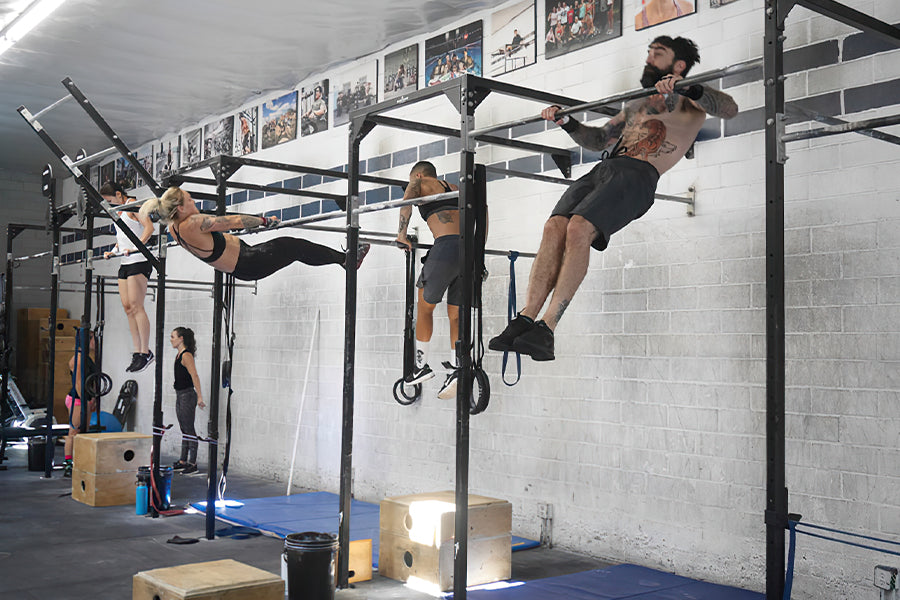
This image is property of www.dmoose.com.
Healthy Fats
Benefits of healthy fats in calisthenics training
Contrary to popular belief, fats are not the enemy when it comes to calisthenics training. In fact, healthy fats play a crucial role in providing energy, supporting hormone production, and promoting overall health and well-being. Including the right types of fats in your diet can actually enhance your performance and aid in muscle recovery.
Healthy fats provide a concentrated source of energy, allowing you to sustain your energy levels throughout your workouts. They also help regulate hormone levels, including testosterone, which is essential for muscle growth and strength. In addition, fats are necessary for the absorption of fat-soluble vitamins, such as vitamins A, D, E, and K.
Sources of healthy fats to incorporate
When selecting fats for your calisthenics training diet, focus on incorporating unsaturated fats, particularly monounsaturated and polyunsaturated fats. These fats are found in foods such as avocados, nuts, seeds, and fatty fish like salmon, mackerel, and sardines.
Avocados are not only a great source of healthy fats but also provide other beneficial nutrients like vitamins, minerals, and fiber. Nuts and seeds, such as almonds, walnuts, chia seeds, and flaxseeds, not only contain healthy fats but also offer protein and fiber.
Fatty fish, known for their omega-3 fatty acid content, provide numerous health benefits. Omega-3 fatty acids have been shown to reduce inflammation, improve heart health, and support brain function. Other sources of healthy fats include olive oil, coconut oil, and nut butter made from natural, unsweetened ingredients.
Optimal intake of fats
While healthy fats are beneficial, it is important to consume them in moderation, as they are calorie-dense. Aim to include a small serving of healthy fats in each meal and snack throughout the day to reap their benefits without excessive calorie intake.
Different individuals may have varying fat needs based on factors such as body composition, activity level, and overall dietary preferences. However, a general guideline is to consume approximately 20-35% of your daily caloric intake from fats, with the majority coming from healthy unsaturated sources.
Hydration
Importance of staying hydrated during calisthenics training
Staying hydrated is crucial for optimal performance and overall well-being during calisthenics training. Water is involved in various bodily functions, including maintaining body temperature, lubricating joints, and transporting nutrients.
During exercise, your body loses water through sweat to regulate body temperature. If you do not replenish these fluid losses, you may experience dehydration, which can negatively affect your performance and increase the risk of fatigue, muscle cramps, and even heat-related illnesses.
Recommended fluids for hydration
Water should be your go-to fluid for staying hydrated during calisthenics training. It is readily available, cost-effective, and generally sufficient for most individuals. Aim to drink water before, during, and after your workout to maintain adequate hydration levels.
In certain circumstances, such as prolonged or intense workouts, you may benefit from consuming sports drinks that contain electrolytes like sodium and potassium. These electrolytes help replace the minerals lost through sweat and aid in hydration and muscle function.
Additionally, herbal teas and electrolyte-rich beverages, like coconut water, can provide extra hydration and valuable nutrients. Avoid sugary drinks or excessive caffeine intake, as they can have diuretic effects and may lead to dehydration.
Signs of dehydration and how to prevent it
It is important to be aware of the signs of dehydration and take steps to prevent it during your calisthenics training. Common symptoms of mild dehydration include increased thirst, dry mouth, fatigue, and dark yellow urine.
To prevent dehydration, start your workout well-hydrated and continue to drink water or other fluids regularly throughout your session. Sip water before, during, and after exercises, even if you do not feel excessively thirsty. It is recommended to aim for around 8 to 16 ounces of fluid every 15-20 minutes during exercise.
In hot and humid environments, increase your fluid intake to account for additional fluid losses through sweating. Pay attention to your urine color – a pale yellow color indicates good hydration, while a darker color may indicate the need for more fluids.
Remember, individual fluid needs may vary based on factors such as body size, sweat rate, and environmental conditions. It is essential to listen to your body and prioritize hydration to support your calisthenics performance and overall health.

This image is property of bodyweighttrainingarena.com.
Pre-Workout Nutrition
Fueling your body before calisthenics workouts
Pre-workout nutrition plays a vital role in preparing your body for the demands of calisthenics training. It ensures that you have sufficient energy levels, promotes muscle recovery, and enhances your overall performance.
Consuming a balanced meal or snack before your workout provides your body with the necessary nutrients to sustain energy levels and enhance exercise performance. Aim to have a combination of carbohydrates for energy, proteins for muscle repair, and healthy fats for sustained energy release.
Recommended foods for pre-workout meals
When planning your pre-workout meal, opt for easily digestible and nutrient-dense foods. Some examples of pre-workout meal options include:
- Whole grain toast with nut butter and banana slices
- Greek yogurt with berries and a sprinkle of granola
- Oatmeal topped with nuts and seeds
- Grilled chicken or tofu wrap with vegetables
- Rice cakes with avocado or hummus
These options provide a good balance of carbohydrates, proteins, and healthy fats to fuel your workout effectively. Remember to choose portion sizes that work for you and give yourself enough time to digest your meal before starting your calisthenics routine.
Balancing macronutrients for optimal performance
To optimize your pre-workout nutrition, strive for a balance of macronutrients. Carbohydrates should be the main focus, as they provide the primary source of energy for your muscles. Aim to consume a moderate amount of complex carbohydrates to ensure a steady release of energy throughout your workout.
Proteins and fats are also important to include in your pre-workout meal, albeit in smaller amounts. Protein helps with muscle repair and synthesis, while fats provide sustained energy release. Including these nutrients can prevent hunger during your workout and provide lasting fuel for your body.
Experiment with different pre-workout meals and snacks to find what works best for you. Keep in mind that individual preferences, digestion, and exercise intensity can impact the ideal combination and timing of pre-workout nutrition. Listen to your body and make adjustments accordingly for optimal performance.
Post-Workout Nutrition
Recovering and replenishing after calisthenics workouts
Post-workout nutrition is essential for muscle recovery and replenishment after intense calisthenics workouts. It helps kickstart the muscle repair process, restores glycogen stores, and maximizes the benefits of your training.
Consuming the right combination of nutrients after exercise can promote muscle growth, reduce muscle soreness, and prepare your body for the next workout session.
Importance of post-workout nutrition
During calisthenics training, your muscles undergo stress and micro-tears, which require proper nourishment to repair and rebuild. Post-workout nutrition provides the necessary nutrients to support this recovery process, enabling your muscles to grow stronger and adapt to the demands of your training.
Additionally, glycogen stores become depleted during exercise, and consuming carbohydrates after your workout helps replenish these stores. Replenishing glycogen is vital to ensure you have enough energy for your next training session and prevents excessive fatigue.
Ideal foods to consume for muscle repair and growth
To optimize your post-workout nutrition, focus on consuming a combination of carbohydrates, proteins, and a moderate amount of healthy fats. Some examples of post-workout meals and snacks include:
- Grilled chicken or fish with a side of roasted vegetables and a small serving of brown rice
- Quinoa salad with mixed vegetables, chickpeas, and a drizzle of olive oil
- Protein shake or smoothie made with a combination of fruits, Greek yogurt, and a scoop of protein powder
- Egg omelet or scrambled eggs with vegetables and a slice of whole grain toast
These options provide a balance of nutrients, including essential amino acids for muscle repair and growth, carbohydrates for glycogen replenishment, and healthy fats for overall nourishment.
Remember to consume your post-workout meal or snack within the “anabolic window,” which is typically within 1-2 hours after your workout. This timeframe allows your body to efficiently absorb and utilize the nutrients for recovery and muscle synthesis.

This image is property of barbend.com.
Superfoods
Superfoods that can enhance calisthenics performance
Superfoods are nutrient-dense foods that provide numerous health benefits and can enhance your performance in calisthenics training. These foods are rich in vitamins, minerals, antioxidants, and other bioactive compounds that support overall health and well-being.
Incorporating superfoods into your diet can help boost your energy levels, improve recovery, and enhance your body’s ability to adapt to the physical demands of calisthenics.
Nutrient-dense foods to include in your diet
While there is no strict definition of what constitutes a superfood, some examples of nutrient-dense foods that are often considered as such include:
- Berries: Blueberries, strawberries, and raspberries are packed with antioxidants, vitamins, and fiber.
- Leafy greens: Spinach, kale, and Swiss chard are nutrient powerhouses, providing essential vitamins, minerals, and antioxidants like vitamin C and beta-carotene.
- Turmeric: This spice contains curcumin, a powerful anti-inflammatory compound that aids in reducing inflammation and promoting recovery.
- Chia seeds: These tiny seeds are rich in omega-3 fatty acids, fiber, and protein, providing a sustained release of energy.
- Greek yogurt: High in protein and calcium, Greek yogurt helps with muscle repair and bone health.
- Quinoa: A complete protein source, quinoa also provides fiber, iron, and magnesium for sustained energy and muscle recovery.
- Dark chocolate: Packed with antioxidants, dark chocolate can improve blood flow and enhance cognitive function.
These are just a few examples, and there are numerous other superfoods to explore. Incorporating a variety of nutrient-dense foods into your diet can provide the necessary vitamins, minerals, and antioxidants to support your calisthenics training and overall health.
Benefits of incorporating superfoods
Including superfoods in your diet offers various benefits for your calisthenics performance and overall well-being. These nutrient-dense foods provide antioxidants that help reduce inflammation and protect against oxidative stress caused by intense workouts.
Superfoods also supply essential vitamins and minerals that support energy production, enhance recovery, and facilitate muscle repair. Additionally, their high fiber content aids in digestion and supports gut health, which is crucial for nutrient absorption and overall immune function.
While superfoods can be a valuable addition to your diet, it is important to remember that they are not a magical solution. They should be incorporated as part of a well-balanced diet that includes a variety of foods from different food groups.
Vitamins and Minerals
Essential micronutrients for calisthenics training
Alongside macronutrients like carbohydrates, proteins, and fats, vitamins and minerals are essential for optimal calisthenics training. These micronutrients play vital roles in energy production, muscle contractions, and overall health.
Ensuring adequate intake of vitamins and minerals supports proper bodily functions, enhances recovery, and reduces the risk of deficiencies that can negatively impact performance.
Food sources rich in vitamins and minerals
A well-rounded diet that includes a variety of nutrient-dense foods is the best way to obtain the necessary vitamins and minerals for your calisthenics training. Here are some key vitamins and minerals and their food sources:
- Vitamin C: Found in citrus fruits, berries, bell peppers, and leafy greens, vitamin C supports collagen synthesis, immune function, and iron absorption.
- Vitamin D: While sunlight is the best natural source of vitamin D, fatty fish, fortified dairy products, and eggs provide small amounts. Vitamin D is crucial for bone health and immune function.
- Calcium: Dairy products like milk, yogurt, and cheese are excellent sources of calcium. Leafy greens, tofu, and fortified plant-based milk alternatives also provide calcium for bone health and muscle function.
- Iron: Red meat, poultry, fish, and legumes are rich sources of iron, which is essential for oxygen transport and energy production.
- Magnesium: Green leafy vegetables, nuts, seeds, and whole grains are good sources of magnesium, which is involved in muscle contractions and energy metabolism.
This list is not exhaustive, and there are many other vitamins and minerals that support calisthenics performance. Aim for a well-balanced diet that includes a wide range of fruits, vegetables, whole grains, lean proteins, and healthy fats to ensure you are obtaining essential micronutrients.
Supplementation for optimal nutrient intake
While a healthy diet should generally provide adequate vitamin and mineral intake, there may be circumstances where supplementation is necessary. Individuals with specific dietary restrictions, limited food choices, or increased nutrient requirements may benefit from targeted supplementation.
If you are concerned about your nutrient intake or suspect a deficiency, consult with a healthcare professional or registered dietitian who can assess your needs and recommend appropriate supplementation if necessary. Remember, supplementation should not replace a balanced diet but rather support it when needed.

This image is property of sm.askmen.com.
Preventing Muscle Fatigue
Nutrition strategies to prevent muscle fatigue
Muscle fatigue during calisthenics training can hinder your performance and limit your progress. However, implementing certain nutrition strategies can help combat muscle fatigue, allowing you to optimize your workouts and achieve your goals.
Foods that provide sustained energy during workouts
To prevent muscle fatigue, it is important to consume foods that provide sustained energy throughout your workouts. Complex carbohydrates are your best friend in this regard, as they provide a steady release of glucose, which is essential for fueling your muscles.
Opt for carbohydrates with a low glycemic index (GI), as these are digested and absorbed slowly, providing a gradual and sustained source of energy. Foods like whole grains, sweet potatoes, and legumes are excellent choices.
Including a small amount of protein in your pre-workout snack or meal can also help prevent muscle fatigue. Protein helps stabilize blood sugar levels and provides a slow-release of energy, preventing sudden energy crashes during your workout.
Balancing electrolytes for muscle function
Electrolytes, including sodium, potassium, and magnesium, play a crucial role in muscle function and preventing fatigue. Sweat loss during exercise leads to a depletion of these electrolytes, and inadequate replenishment can negatively affect your performance.
To ensure optimal electrolyte balance, include foods rich in these minerals in your diet. Some examples include bananas, oranges, leafy greens, nuts, seeds, and electrolyte-rich sports drinks. These foods help replenish electrolytes and support proper muscle function, preventing fatigue and cramps during your calisthenics training.
Remember to stay hydrated and consume balanced meals and snacks that provide a combination of carbohydrates, proteins, healthy fats, and electrolytes. These strategies can help prevent muscle fatigue and promote optimal performance in your calisthenics workouts.
Boosting Endurance
Foods to improve endurance in calisthenics
Endurance is essential for calisthenics training, allowing you to perform exercises with proper form and maximize your workout potential. By incorporating certain foods into your diet, you can enhance your endurance and achieve better results in your training sessions.
Carbohydrate-loading for extended training sessions
Carbohydrate-loading, also known as glycogen-loading, is a strategy to maximize glycogen stores in your muscles and liver. This technique is particularly beneficial for extended calisthenics training sessions or intense workouts that last longer than 90 minutes.
To carbohydrate-load, increase your carbohydrate intake in the days leading up to your prolonged training session. Focus on consuming complex carbohydrates such as whole grains, fruits, and starchy vegetables to gradually increase glycogen stores.
It is important to note that carbohydrate-loading is not necessary for every workout. It is best reserved for situations where extended endurance is required, such as during competitions or intense training sessions lasting multiple hours.
Including energy-rich snacks during workouts
For shorter workouts or intense bursts of calisthenics exercises, including energy-rich snacks during your training session can help sustain your endurance. These snacks should provide quick and easily digestible sources of energy to fuel your muscles. Aim for a combination of carbohydrates, proteins, and fats to maintain energy levels and prevent fatigue.
Some examples of energy-rich snacks for calisthenics include energy gels, fruit smoothies, homemade energy bars, or small servings of dried fruit and nuts. These options deliver a quick energy boost without causing discomfort during exercise.
Remember to choose snacks that work well with your digestive system and experiment with different options to find what best suits your body’s needs. Be mindful of portion sizes to avoid unnecessary calorie intake that may hinder your progress.
Incorporating these strategies and foods into your diet can help improve your endurance in calisthenics training, allowing you to perform at your best and reach new heights in your fitness journey.
Overall, calisthenics training requires proper nutrition to support your energy levels, muscle recovery, and overall performance. By incorporating a balance of carbohydrates, proteins, healthy fats, vitamins, and minerals into your diet, you can optimize your workouts and make progress in your calisthenics journey. Remember to listen to your body, experiment with different foods, and adjust your nutrition plan according to your individual needs and goals. With the right fuel, you’ll be able to achieve your calisthenics aspirations and take your training to new heights.
